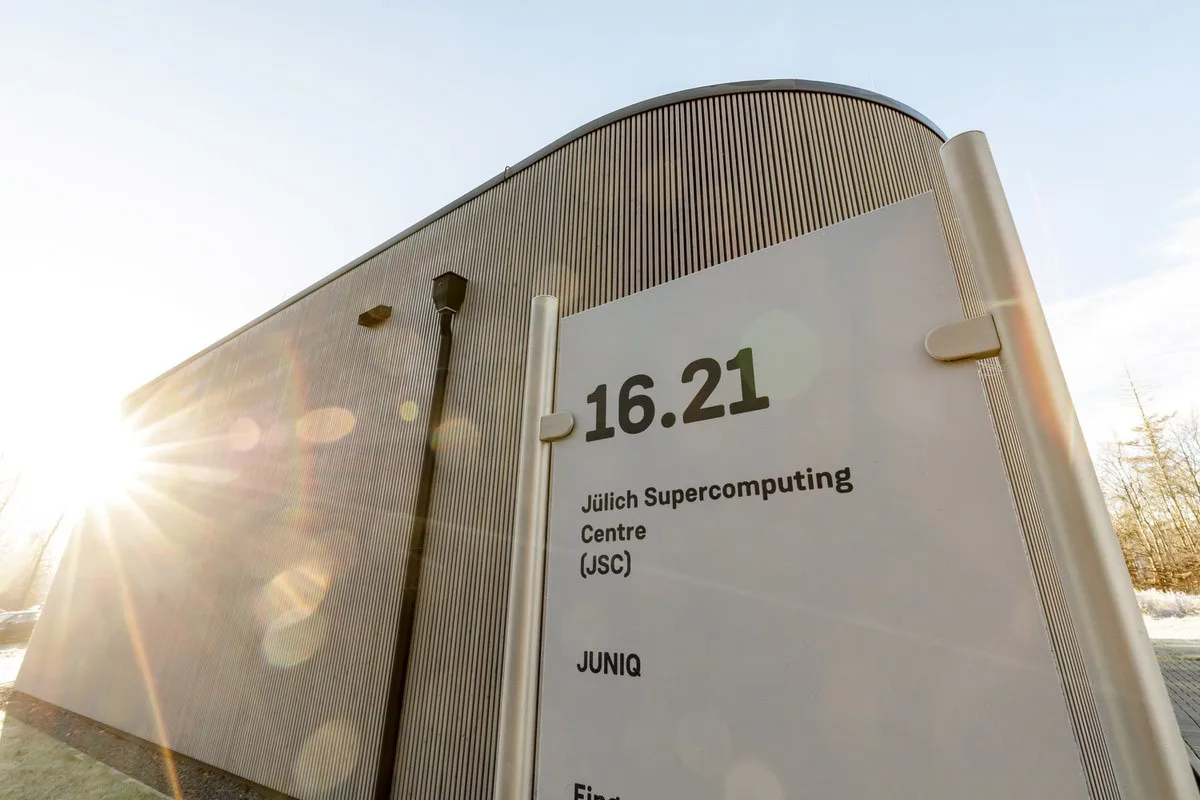The Jülich Supercomputing Centre (JSC) in Germany has purchased a 5-qubit quantum system, the IQM Spark, from IQM Quantum Computers. The quantum computer is set to be operational by July 2024 and will be integrated with JSC’s classical supercomputers. This will allow researchers to explore how quantum computers can speed up calculations on classical supercomputers.
The IQM Spark, costing less than €1 million, is designed for basic experiments and educational applications at universities and research institutes. The system will be part of JSC’s JUNIQ quantum computing infrastructure, providing access to cutting-edge quantum computers for science and industry in Germany and Europe.
Jülich Supercomputing Centre’s New Quantum Computer: IQM Spark
The Jülich Supercomputing Centre (JSC) in Germany has procured a 5-qubit quantum system, the IQM Spark, from IQM Quantum Computers. The IQM Spark is set to be operational by July 2024 as a part of Jülich’s JUNIQ quantum computing infrastructure. The system will be linked to JSC’s classical supercomputers, providing researchers with the opportunity to explore how quantum computers can accelerate calculations on classical supercomputers.
Quantum computers have the potential to solve certain tasks much faster than classical computers. This is particularly applicable to optimization problems in sectors such as transport and finance, as well as the simulation of chemical reactions and molecules. However, the technology is still in its early stages of development.
The Cost and Functionality of IQM Spark
The IQM Spark, priced under €1 million, has been specifically developed for basic experiments and applications in teaching at universities and research institutes. Quantum bits, or qubits, are generated using superconducting electronic resonant circuits. These circuits must be cooled to temperatures close to absolute zero (−273.15 °C) to ensure the sensitive quantum properties are not lost.

JUNIQ: Jülich’s Quantum Computing Infrastructure
The new system will be operated as part of the Jülich quantum computing infrastructure, JUNIQ. Through this platform, JSC is providing science and industry in Germany and Europe with access to state-of-the-art quantum computers. The IQM Spark system has numerous expansion and connection possibilities, making it a perfect fit for Jülich’s JUNIQ concept.
The aim of the concept is to operate quantum computers in conjunction with classical supercomputers and to integrate them into the modular high-performance computing environment in the form of quantum–classical hybrid computing systems.
Quantum Algorithms and Hybrid Quantum Computing
The most advanced quantum algorithms, which are used to solve optimization problems, require a close coupling of quantum computers and classical supercomputers. The IQM pilot system makes it possible to integrate a freely programmable, gate-based quantum computer into the modular Jülich supercomputing infrastructure at a very early stage in order to gain groundbreaking experience in hybrid quantum computing.
IQM Quantum Computers: A Global Player in Quantum Computing
IQM Quantum Computers has a strong global presence in the field of quantum computing. The company provides on-premises quantum computers for supercomputing centres and research labs and offers full access to its hardware. For industrial customers, IQM delivers quantum advantage through a unique application-specific, co-design approach.
IQM’s commercial quantum computers include Finland’s first commercial 50-qubit quantum computer with VTT, IQM-led consortium’s (Q-Exa) HPC quantum accelerator in Germany, and IQM processors will also be used in the first quantum accelerator in Spain. IQM has over 290 employees with offices in Espoo (Finland), Munich (Germany), Madrid (Spain), Paris (France), Singapore, and Palo Alto (CA, US).
External Link: Click Here For More

